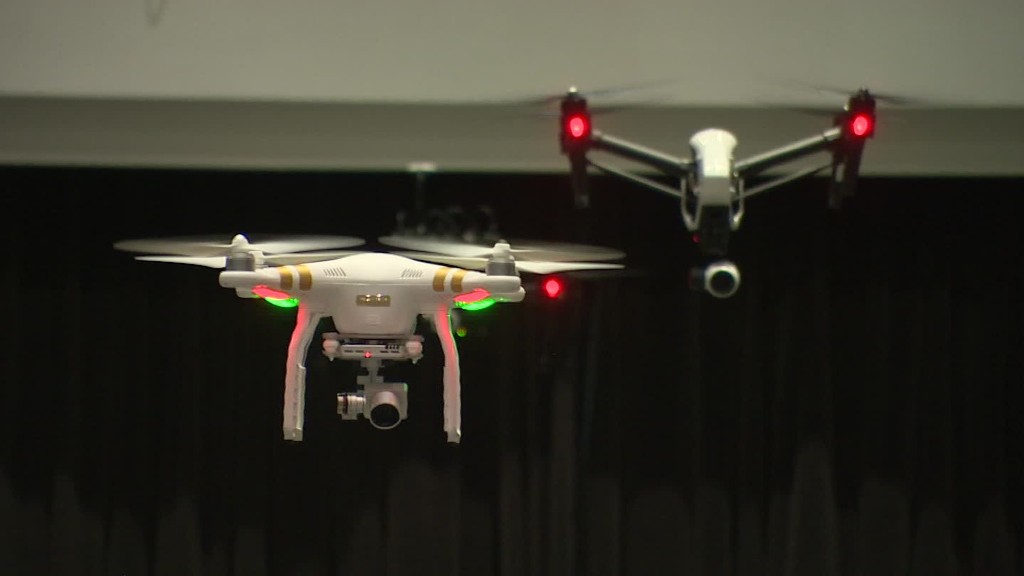
In the two days since the FAA launched its drone registration site, a whopping 45,000 people have registered their aircraft. Come Christmas day, that number could skyrocket.
Around 400,000 drones are expected to be purchased this holiday season, according to the Consumer Technology Association. Sometime between tearing open the wrapping paper and taking to the skies, new owners will have to visit the FAA website to register their drone or risk breaking the law.
The FAA announced the registration requirement earlier this month and launched the site on Monday, hoping to get up and running before the holiday rush. If you buy or receive a drone this holiday season, make sure you're flying it legally.
Did I get a drone?
You unwrapped a new present that can fly, but is it a drone? The term "drone" refers to a variety of flying devices that are controlled with onboard computers or remotely with a handheld remote, computers or smartphones. Your new frisbee is not a drone. Your radio controlled quadcopter is.
Also called unmanned aircraft systems (UAS), drones can be small toys or large industrial unmanned aircraft. Consumer drones are used as kids' toys, by flying hobbyists, for photography and selfies, and even for racing.
Why do drones need to be registered?
The gadgets are still relatively new but the government thinks they have the potential to violate people's privacy, dangerously interfere with large aircraft, and generally cause mischief. There have already been reports of drones interfering with fire departments fighting wildfires and police helicopters. Registering is first step by the FAA to help drone operators use the devices safely through education and accountability.
Do you need to register your drone?
Drones that weigh more than .55 pounds and less than 55 pounds must be registered. As the FAA helpfully points out, if your drone weighs more than two sticks of butter, you should register it.
Most toy drones under $100 won't weigh enough to qualify. If you plan on using the aircraft to carry a load such as a camera, that counts towards the minimum weight. Registration is limited to U.S. citizens and legal permanent residents. Other owners will still need to apply on the site before flying, but they'll get a different certification.
Drones that will be used for commercial purposes or those that weigh more than 55 pounds need to be registered using an older, paper-based system.
How do you register?
Registration is $5 for three years and can be done online at RegisterMyUAS.faa.gov. Drone owners give the FAA their full name, physical and mailing addresses, and an email address. The FAA is waiving the fee for one month. People who bought a drone before December 21 have until February 19 to register.
The FAA will also send you a certificate of registration. If asked for it by law enforcement, you can show a printed or digital version of the certificate. If you loan your drone to some buddies for the weekend, they can also borrow the document. You must also write your registration number on all your drones.
What happens if you don't register?
Criminal penalties for flying a drone without registering are up to three years in jail, or up to $250,000 in fines. The agency is unlikely to dedicate many resources into enforcing the registration rule at first. Local law enforcement will handle the bulk of enforcement for now.
Any other rules you should know?
Once you're registered, you can take your new drone out for a spin. As long as you follow all the rules. Most importantly, don't fly the drone above 400 feet (the height of a 30 to 40 story building), never let it out of your eyesight, and don't fly it near airports or populated areas like stadiums.

